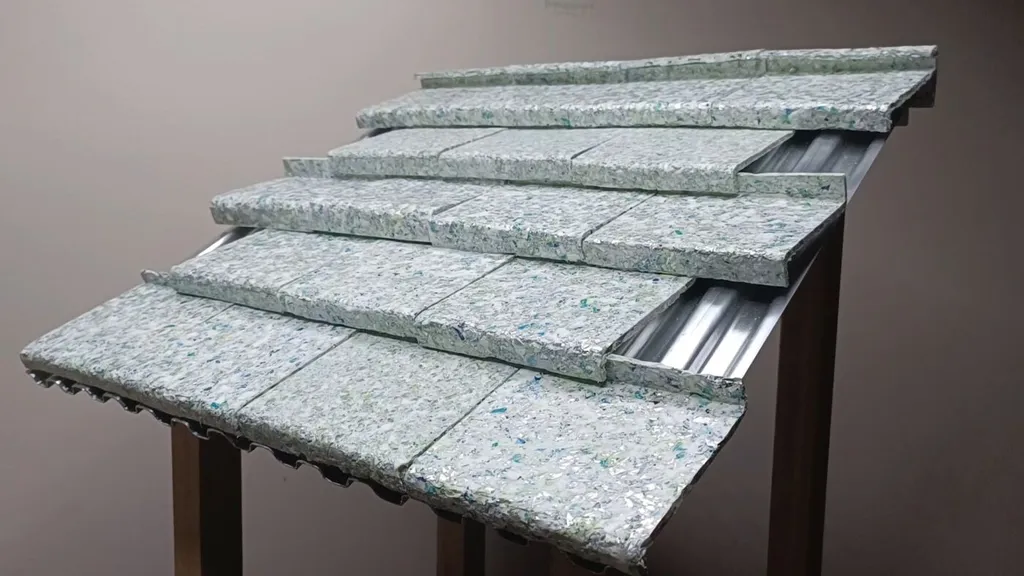In a significant stride towards sustainable construction, researchers have demonstrated the potential of recycled plastic corrugated panels as a viable alternative to traditional roofing materials. A study led by Aaroon Joshua Das from the Department of Civil Engineering at Capital University of Science and Technology in Islamabad, Pakistan, published in the journal *Buildings* (which translates to “Здания” in Russian), has revealed promising results for the use of post-consumer recycled high-density polyethylene (rHDPE) and polypropylene (rPP) in building envelopes.
The global construction industry is under increasing pressure to reduce its carbon footprint, and this research offers a compelling solution. “The push for sustainable building practices has never been more urgent,” Das remarked. “Our study shows that recycled plastics can be transformed into durable, corrosion-resistant materials that meet real-world structural demands.”
The research team subjected rHDPE and rPP corrugated panels to a series of mechanical tests, including flexural strength, impact loading, and vibration testing. The results were impressive: rHDPE exhibited a flexural strength of 8.4 MPa, while rPP showed a strength of 6.3 MPa. Under impact loading, rPP retained 53% of its initial strength, compared to 28% for rHDPE. Additionally, rPP demonstrated 18% higher longitudinal damping, whereas rHDPE outperformed in out-of-plane vibration control.
These findings were further validated through prototype slab testing, confirming the structural viability of recycled plastic panels for roofing and cladding applications. “The distinct crystalline and morphological structures of these materials play a crucial role in their performance,” Das explained, citing the use of XRD and SEM-EDS techniques to confirm these properties.
The implications for the energy sector are substantial. As buildings account for a significant portion of global energy consumption, the adoption of sustainable roofing materials can contribute to energy efficiency and reduced carbon emissions. “This research paves the way for circular construction practices, where waste polymers are valorized into high-performance building materials,” Das noted.
The study’s findings suggest that recycled plastic corrugated panels could become a mainstream choice for sustainable construction, offering durability, corrosion resistance, and low environmental impact. As the industry continues to seek innovative solutions, this research provides a compelling case for the integration of recycled plastics in building envelopes, potentially reshaping the future of sustainable construction.

